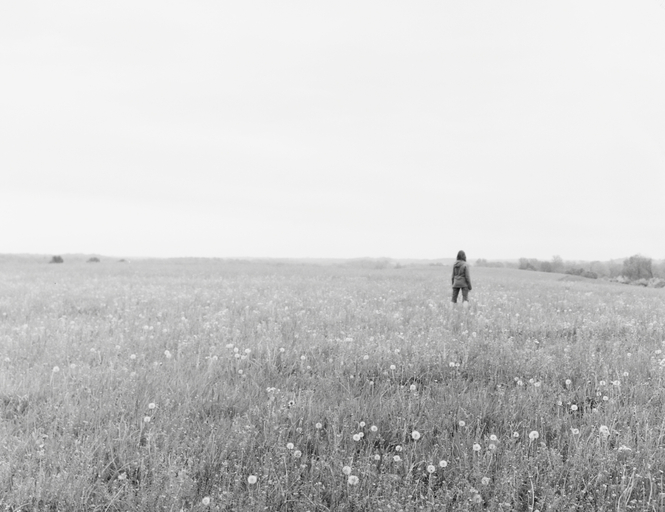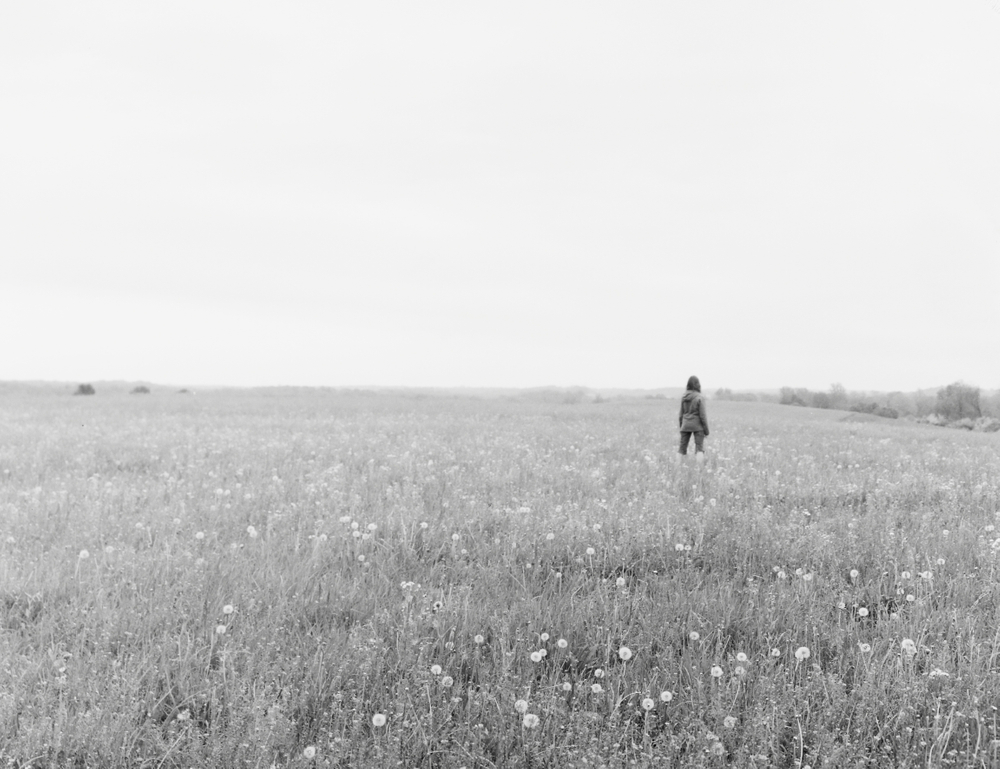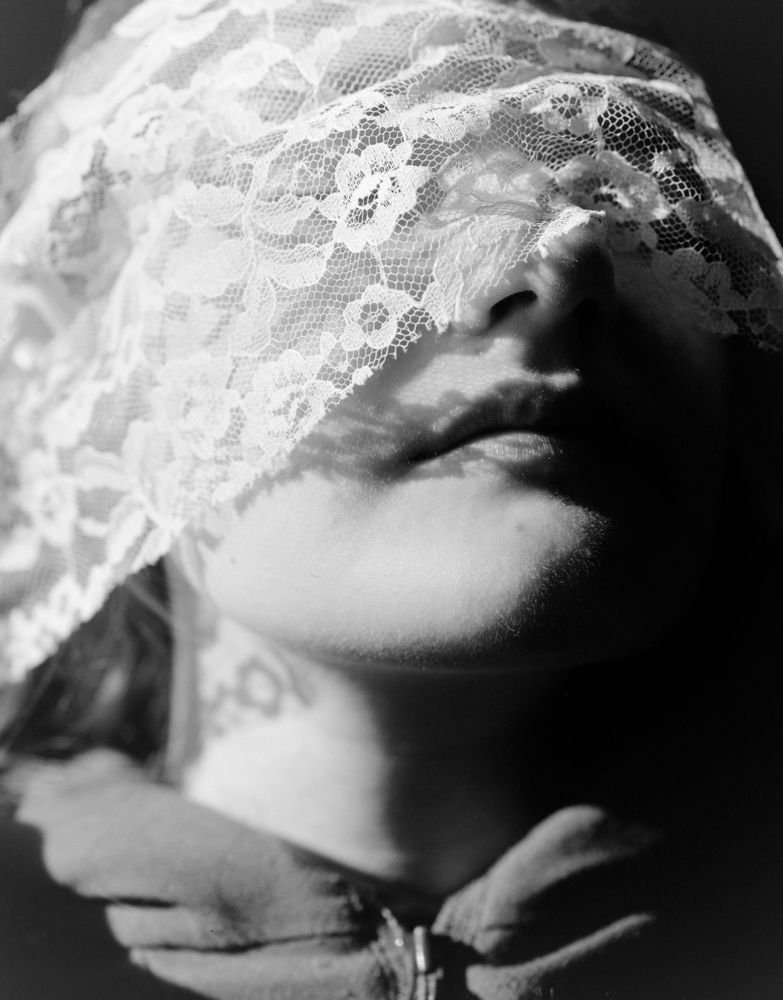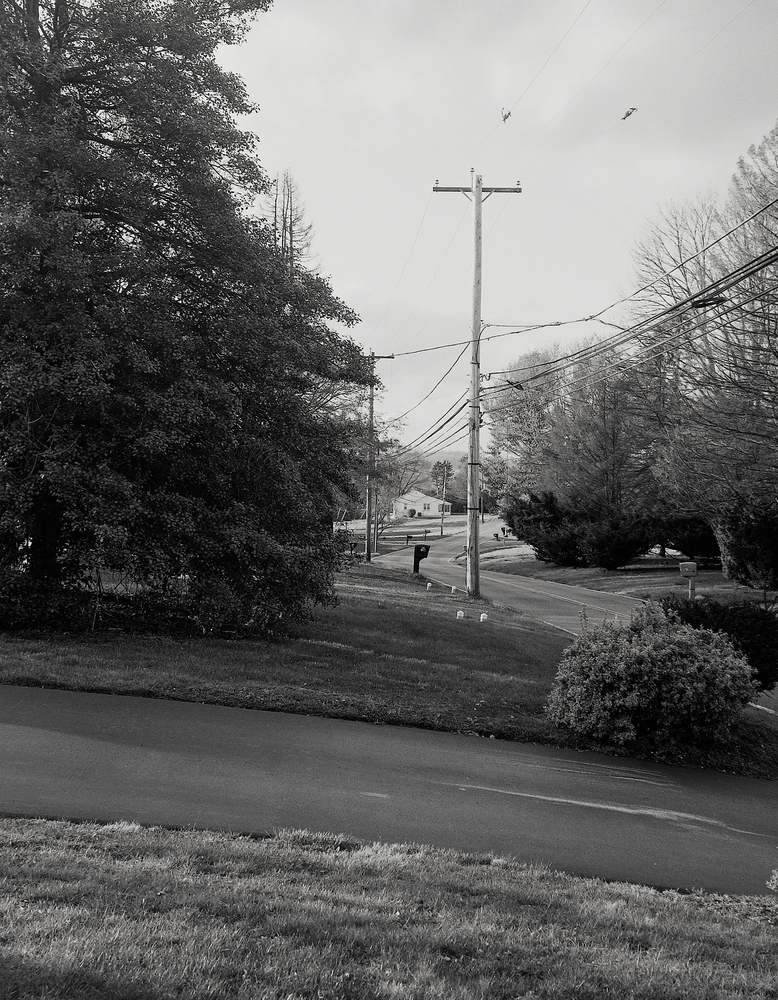
There’s something surreal about the fact that Emily Allen photographs reflections, and here I am, another Emily, profiling her. In an earlier project Echos, Emily (the photographer—not me, the other Emily writing about her) captures tree branches, cityscapes, flowers, and people reflected in glass, water, or mirrors. She’s described these reflections as “echoes of our surroundings, allowing us to glimpse into a world slightly different than our own.” In so many ways, this is how I think of photography. We, the viewers, look at an image and recognize something while at the same time seeing a world that isn’t entirely ours.
In Thin Places, Allen’s most recent project, she captures her childhood home and the surrounding area during the pandemic. It’s a scene that feels so familiar now after many months of staying home. Will we ever look at photographs of interior spaces or emptiness and not be reminded of sheltering in place? Yet, that’s the trick photography plays on the viewer. It’s difficult to look at an image and not attach our own story to it, not to see some version of ourselves reflected back. And that’s not to say attaching one’s own experience to images is wrong in any way. I find this to be the magic of photography; it has the ability to create empathy. But there are many ways of looking, and Thin Places, while relatable, also allows viewers to glimpse Allen’s world—one both real and made up.
Allen began this project early in 2020 after being sent home from college in the middle of the semester. Like so many students at that time, she adjusted to virtual classes and quarantine routines. She also had to adjust to a home she hadn’t lived in for two years. Returning to the house she grew up in was like being “transported back,” she says, “to a time when my sister and I would spend our days constructing imaginary worlds. A time when the real world was beyond our grasp.”
This time, with the world beyond their grasp in a very different sense, Allen and her sister created images instead of imaginary games. The sisters set up shots together and discussed ideas. “This project felt a little like one of our games,” she explains. Knowing this detail allows some of the images in the project to feel slightly playful. In Untitled, Portrait of my great grandmother and her sister we see a framed photo of two girls staring directly at us in a way that Allen and her sister never do. Their faces are always slightly obscured, turned away, or hidden in the shadow of a scrap of lace, but here we get to look dead on at something that is not unlike a reflection of the current-day sisters—accentuated by the literal reflection we see in the image. The glass framing the portrait catches the glow of an overhead lamp and frames what is presumably Allen’s tripod squarely in the body of one of the sisters.
Water and reflection are elements that run through all of Allen’s projects. In a self-portrait taken for Thin Places, Allen placed herself in front of various glasses of water, and her sister prompted her to dip her hand into the nearest vase. The photographer’s face looks back at us from various angles, trapped inside each vessel. When asked if any of the images in Thin Places directly reference memories or games she and her sister shared as children, Allen explains she didn’t purposefully frame the shots to allude to a memory but sometimes, looking back on the project, she can connect a couple of the photographs to something from their youth.
This self-portrait reminds her of a game she and her sister constructed as kids. The point of the game was to navigate their way through their home relying only on a hand mirror pointed up to reflect the ceiling. “We would run around the house this way avoiding the obstacles on the ceiling,” Allen recalls. “We sometimes ended up running into walls or tripping down the stairs, but eventually we became so accustomed to being aware of both the ceiling and the floor that we could successfully traverse the house on the ceiling.” Hearing this, I can’t help but think about how the photographer has been studying different ways of looking at things since she was a child. Even in her own home, a space that can often blur with familiarity, she discovers new ways of tripping—of being surprised by what she thought she knew.
In a way, this childhood game plays out in her current work. She often focuses her lens in the opposite direction of the busy world and in doing so, reflects it. “Nine times out of ten you’ll find me photographing a little flower on the side of the road instead of the bustling city scene,” Allen tells me. She often shoots with both large apertures and tighter frames, leading her images to hone in on something and erase everything else. She’s also meticulous about focusing, so being at home, a place where she could take her time “without the pressure of eyes”, gave her all the more space to fixate on what she wanted her viewers to see.
This is one of the things Allen appreciates about photography. “You can play with reality and the imaginary.” She thinks about the assumption that images are real, the way viewers give so much of their trust to photography because the thing they are looking at—the thing in the photograph—actually exists. Using this assumption, Allen looks for ways of carving out her own space in the assumed ‘real-ness’ of images. “Artists take the world and transform it somehow, they make it about something. It’s fascinating to me to see how photographers transform the world using only the world itself,” she says.
Allen never seems to take this for granted. In images like Untitled, Childhood bedroom we get to gaze at a room full of things that were left behind and then returned to. Or maybe it’s her sister’s room. Or maybe it’s not even a bedroom, but she has made it into one. Whatever the ‘real’ identity of this room is, the one Allen gives it is nostalgic and fleeting. A teddy bear rests at the foot of the unmade bed, a precariously placed guitar appears to have just been set down. Everything in the sun-filled space feels recently touched, like someone’s breath might still be hanging in the air. And yet the paper cranes hanging from the ceiling by string that catches the light are perfect in their stillness. It’s a bedroom just as full as it is empty. When I asked Allen about what was on her mind when working through this project, she said, “I’m thinking a lot about how things change without me being there.” Being back with her sister, back in her old home, she noticed how “even though everything was changing, suddenly everything was the same again”.
Thin Places cartwheels through these themes of absence, change, and return in every image. I found it easy to attach myself to these themes, like the images were sticky in their relatability. Here was Allen’s view from her driveway, but in my head I also conjured up my own childhood driveway, layering it onto what I was looking at as a way of trying to get closer. The intimacy of her focus makes you want to curl up, to fill the vacated spaces she captures. Or maybe just add another reflection to all the mirrors and shadows being cast. And this reminds me of something Allen told me. Looking back at Thin Places, she described the images more as pieces of herself than still lifes or portraits. “I felt like a visitor in my own past. I think the images of hands and shadows were my attempt to insert my present self into this past that I couldn’t quite reach.”
Editor’s note: Thin Places was a jurors’ pick in our HOME International Photography Prize 2021. For new discoveries, check out all the other winners, jurors’ picks and finalists here.
Enjoy more great photography:
- Salt Water Tears
- notes
- Let Us Not Fall Asleep While Walking
- The Truth is in the Soil
- Topophilia
- My Stealthy Freedom—Women in Iran


